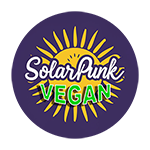Ready to start?
At the heart of veganism is the fundamental commitment to animal rights. This duty is grounded in the understanding that animals, like us, feel pain, experience joy, and lead rich emotional lives. They are not objects or property, but individuals with their intrinsic worth.
Veganism Is A Justice Movement
Veganism is a philosophy and way of living which seeks to exclude—as far as is possible and practicable—all forms of exploitation of, and cruelty to, animals for food, clothing or any other purpose; and by extension, promotes the development and use of animal-free alternatives for the benefit of animals, humans and the environment. In dietary terms it denotes the practice of dispensing with all products derived wholly or partly from animals. — The Vegan Society
The vegan movement began in 1944 when a group of individuals, led by Donald Watson, co-founded The Vegan Society in the UK. Watson, a vegetarian, sought to eliminate all forms of animal exploitation, including the consumption of dairy, eggs, and other animal byproducts. The term “vegan” was coined from the first and last letters of “vegetarian,” symbolizing the movement’s focus on extending the principles of vegetarianism to exclude all animal-derived products. The Vegan Society promoted a lifestyle that rejected animal use and cruelty, advocating for plant-based diets and alternatives to animal-based clothing and materials. Over time, the movement grew in popularity, becoming a global ethical and justice movement.
Frequently Asked Questions
What’s the difference between veganism and vegetarianism?
Vegetarians avoid meat but may still consume animal products like dairy, eggs, and honey. Vegans, on the other hand, avoid all animal products and byproducts in both their diet and lifestyle, including clothing, cosmetics, and entertainment.
Do vegans only avoid animal products in food?
Vegans also avoid animal products in other areas of life, such as clothing (leather, wool, silk), cosmetics, and household items. They aim to avoid any form of animal exploitation in their lifestyle choices.
Is a vegan diet healthy?
A well-planned vegan diet can be nutritionally complete and healthy, rich in vitamins, fiber, and antioxidants. Vegans should be mindful of getting enough nutrients like vitamin B12, iron, calcium, and omega-3s through fortified foods or supplements.
How do vegans get enough protein?
Protein is abundant in plant-based foods such as beans, lentils, tofu, tempeh, seitan, quinoa, nuts, and seeds. A diverse vegan diet provides sufficient protein for people in all stages of life and for champion athletes.
Is being vegan expensive?
Veganism can be affordable or expensive depending on food choices. Staples like beans, grains, fruits, and vegetables are generally inexpensive, but specialty vegan products, like meat alternatives, can be pricier. A basic whole-food plant-based diet is less expensive than the average diet that includes animal products.

Do you have more questions or thoughts?
Reach out for a discussion.
